
Do you struggle with something? Are you facing obstacles in life? Do you feel uncertain on what to do next?
Welcome to the human experience! You are just like everybody else dealing with day to day issues.
Most people can relate to times of difficulty and uncertainty.
Some issues seem to be very personal. Yet we all experience those!
How can we approach uncertainty with calm? See below!
Uncertainty Will Certainly Happen!
One thing is certain: uncertainty happens a lot! When you
- lose your work
- separate from your partner
- or simply get sick
you may experience a lot of potential fears. It happened all at once to me!
So I had plenty of time to learn to deal with it. I still do.
Due to parkour and Zen practice some fears did not affect me anymore. Others did strike with a vengeance though.
In my article on how to overcome fear and become a superhero I mainly focused on my example and others who train parkour.
Most people can’t really relate to that. They simply do not jump around on walls outside.
Today I want to talk about dealing with fears and insecurities that also arise when facing uncertainty in general.
These days uncertainty gets amplified by fear and anger driven media. You better brace yourself!
Fears Fire First
Sometimes – maybe even in most cases – the fears preclude the actual experience.
“You are making yourself crazy” as a German idiom goes. You’re afraid that you might lose your
- work
- partner
- health.
Is there a way to stay calm in potentially dangerous situations? Again – I don’t talk about parkour only.
I want to explain how to become fearless in times of uncertainty as well. How to stay calm when facing any kind of adversity?
Do You Ask for Bad Luck?
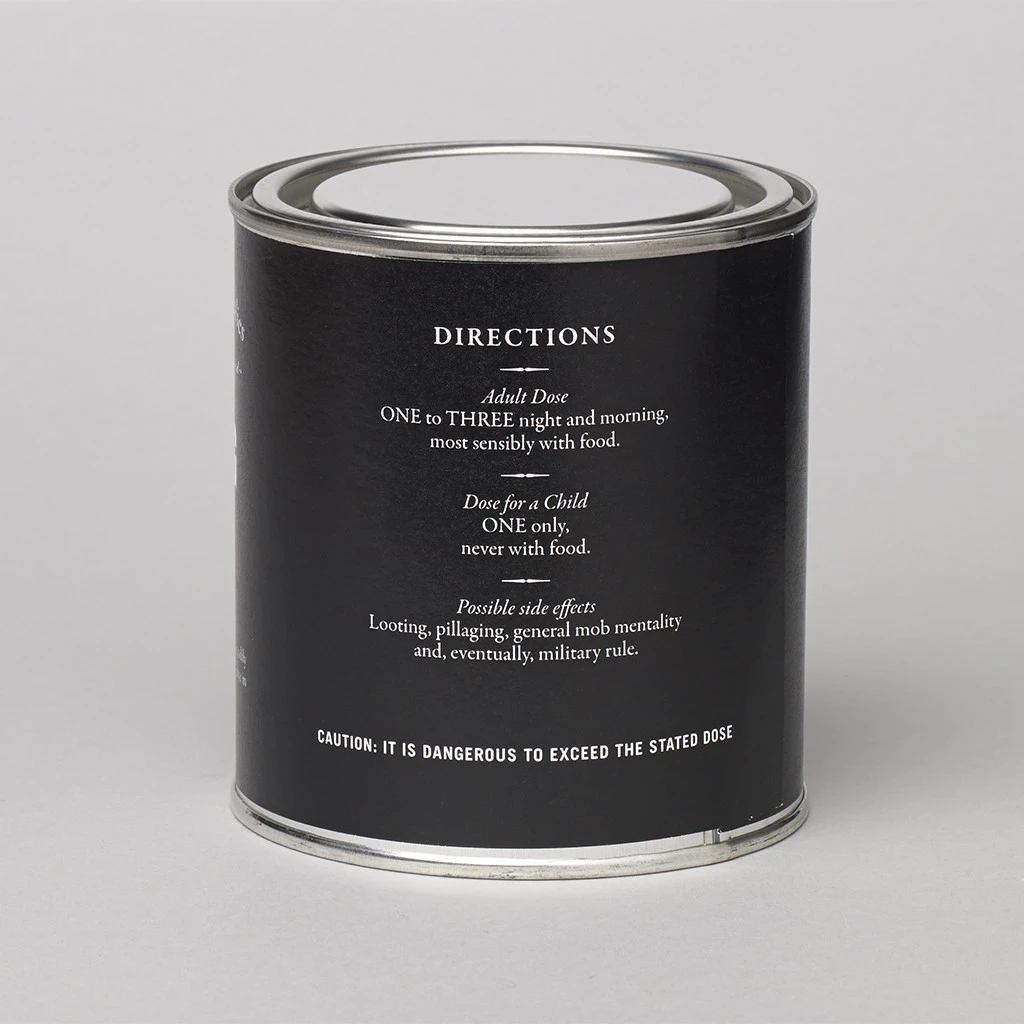
Often the actual stress caused by the fear contributes to the “bad luck” you imagine to happen.
You unconsciously behave in ways that provoke the fears to become reality.
You don’t believe me? Consider the examples below.
Fear of Dogs
For example when you’re afraid of dogs you may cause the dog to become suspicious of you due to your weird defensive behavior.
When you’re afraid of the dog – the dog is more likely to bark.
Long before I became a dog owner I was afraid of dogs myself so I know how that feels.
When you are already afraid of the dog “for no reason” the dog is much more likely to bark or growl at you. Why?
Due to your weird behavior it suspects you of some wrongdoing. Why would you be afraid of it otherwise?
Also when acting out of fear you do awkward things that others – not only dogs – may perceive as threatening.
Fear of Strangers
Most people are not afraid of dogs. Many are afraid of other humans though! As kids we were told: “do not talk to strangers”.
Hollywood movies teach us that strangers are often
- creeps
- criminals
- serial killers.
When I was training parkour with a group we – 5 guys – were once standing loosely around a wall.
We were talking and laughing while suddenly a single guy came at us and started verbally attacking us.
We were wondering what was wrong with him and it occurred to me that he was simply afraid of our presence.
A group of strong guys in baggy pants idling around might look menacing.
You might imagine a possible hold up for your fear-based instincts of fight or flight.
Luckily we were just a bunch of parkour practitioners not hoodlums.
Also he was probably on drugs so we didn’t take him seriously or feel threatened. Others might have beaten him up.
Fear is the Problem – Not the Solution
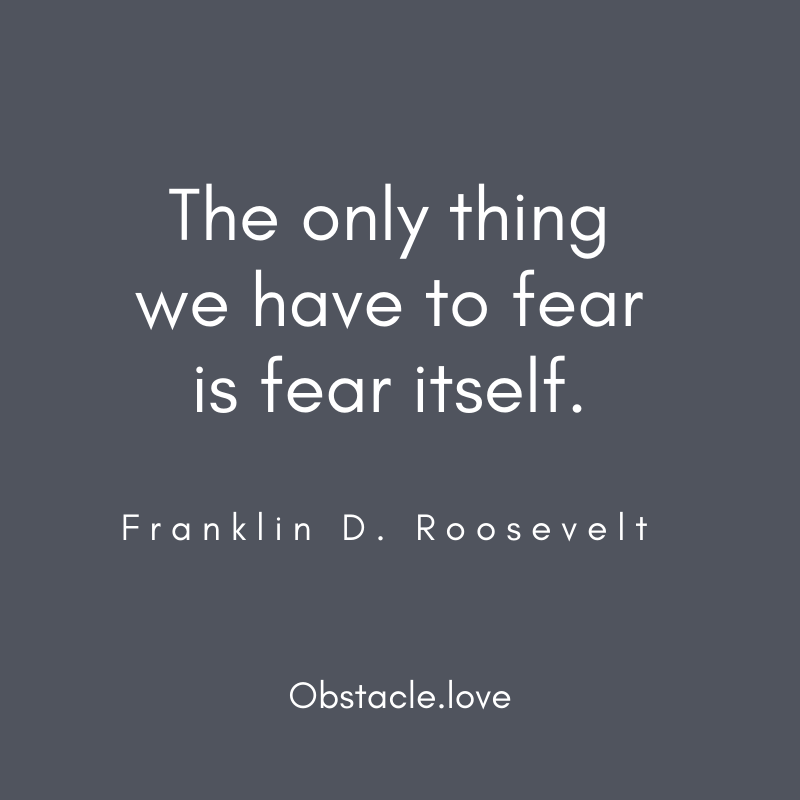
In a way the fear itself becomes the actual problem and causes many others down the road.
Think of panic. People trample blindly upon others and kill them while in a mindless state of panic.
There are many other examples to this. You can add many of yours I bet. I think you get the point by now.
The fear itself is often the problem not the imminent danger.
Even when there is a danger which often is not the case because fear is highly irrational – being fearful does not help in most cases. The opposite is often the case.
Fear often paralyzes. It’s the instinctive fight, flight or freeze reaction.
Instead of removing yourself from a dangerous situation you simply freeze and become unable to act.
Being unable to move in a dangerous situation is not that uncommon. It happened to me once as well.
I was run over by a car even though it was very slow – just starting to move at a cross roads.
I sat on my bike and was just baffled that the woman simply moved on to crush my bike.
I was sure that she would stop. I could have jumped off the bike and to safety with ease but I was simply too slow to react in a meaningful way. I didn’t even shout to prevent her from hitting me.
Staying calm is one thing, being unable to act is another. Thus we need to stay calm but not stay passive. An active decision on whether and how to act is needed not just relying on instincts.
Sometimes doing nothing will be perfectly sufficient.
Just like with the example above where the guy verbally attacked us.
Responding to him would probably only provoke a fight. Shrugging it off and ignoring him was a better choice.
This is also the “don’t feed the troll” response that is the best choice online when facing verbal attacks.
We have to be able to decide consciously what do do. When succumbing to fear and acting upon millions of years old instincts.
It’s your so called lizard brain – you risk doing stupid things that aggravate the situation. Let’s recap. You need to
- stay calm
- decide whether to act
- act consciously.
In parkour we can actually train this. When you don’t train parkour you won’t have enough experience unless you’re a firefighter or something. When shit hits the fan you’re unprepared.
Do you suffer due the global panic of early 2020? Here are some actionable ideas on how to deal with the mass hysteria.
How Does Fear Work?
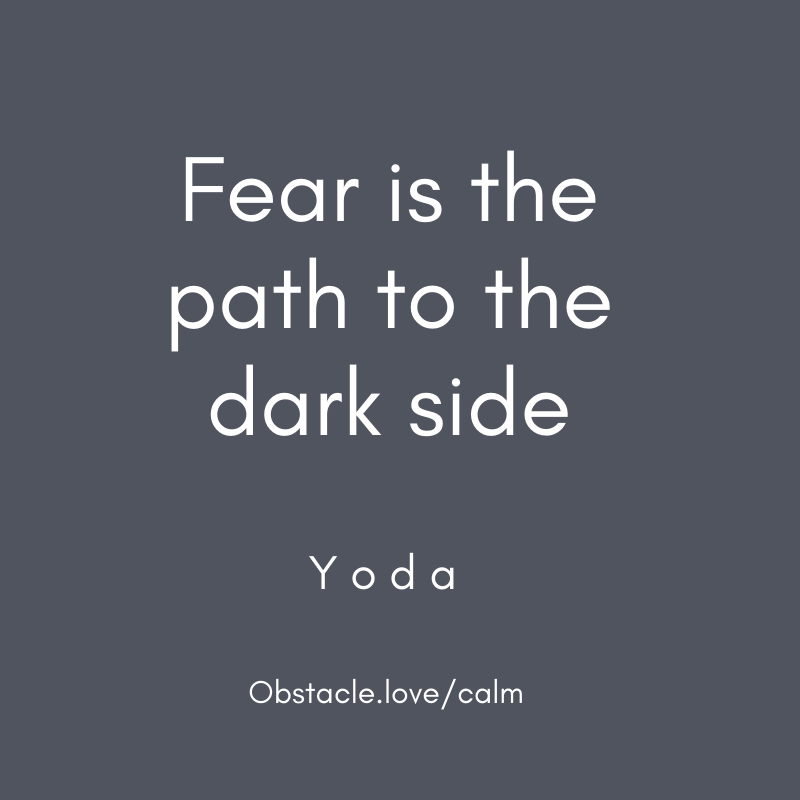
How does fear work? Most types of fear are not natural. What does it mean? You learn them from your environment by watching others.
Also most types of fear happen when you imagine a future in which you will suffer or get harmed. It’s your thoughts that cause the fear.
Most animals instinctively run away but you can’t threaten them with torture or other consequences in the future.
Their brains aren’t sophisticated enough to imagine a future outcome and its consequences.
There are types of fear that work like a reflex.
Fear of suffocating is one but you can even train to overcome that one. US marines do it in their training for example by diving as long as possible.
Read Mark Lauren’s story on how he broke the record during his time in the military.
He managed to stay calm much longer than anybody before him by ignoring the instinctive fear of suffocation and drowning.
Fear can be induced easily by others. It often suffices to mention a word that triggers your fears. For example words like
- cancer
- spider
- Muslim
can make you experience fear even though the situation is perfectly safe.
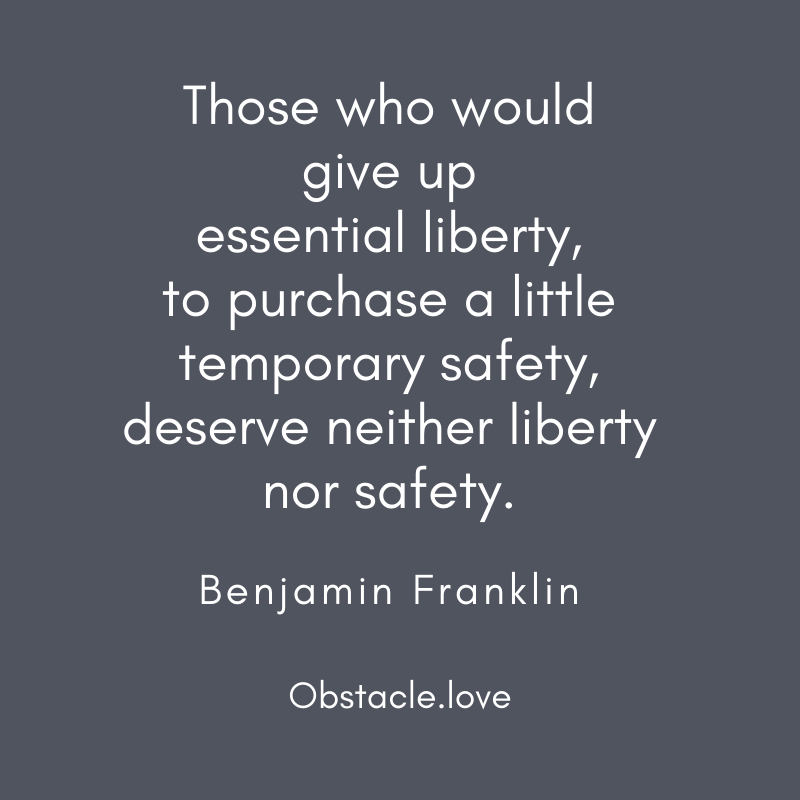
Yes, even Muslim. I don’t mean to say that Muslims are dangerous but as media often portrays Muslims as radicals and terrorists you learn to associate the term with fear and loathing.
There certainly are Muslim terrorists out there but given the number of a billion Muslims in the world it’s no wonder there are a few radicals among them.
In many countries the powerful elites – think the government and corporations for example – are instilling fear in the public to make it more prone to obey authority.
When you’re afraid you play it safe and keep your head down.
Be always weary when the media is pushing the latest scare. They make money off scaring people. Even when something terrible happens fear mongering is always wrong.
When the government wants you to give up civil liberties they will always scare you first. Often they will use tragedy to extend their power.
The likeliest cause of sudden death are still traffic accidents. More than a million people die on the streets each year globally.
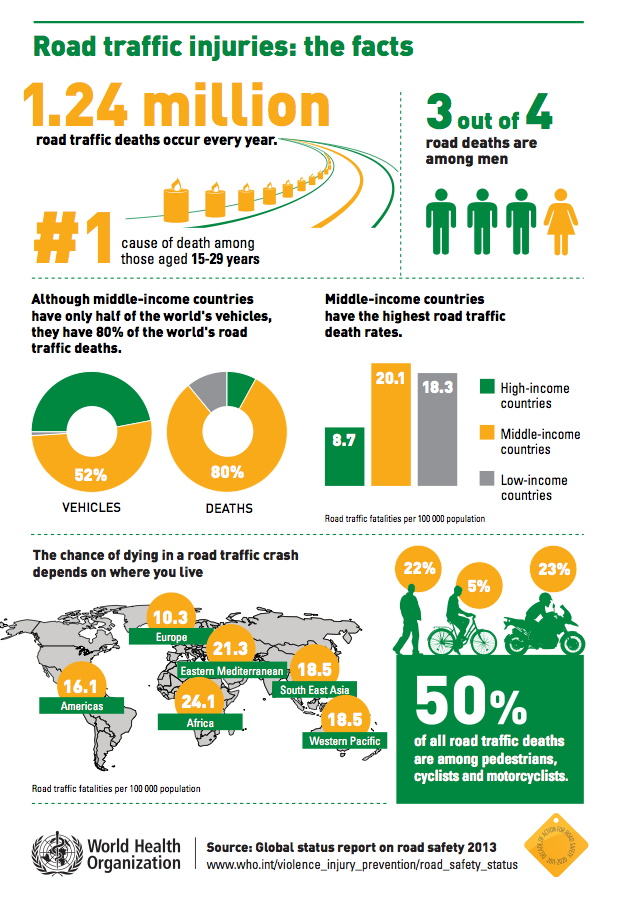
Even in a country like Germany with very high standards that’s still approximately 5000 deaths every single year.
Take note that not only old and sick people die in traffic. Perfectly healthy adults and even kids die. Yet nobody stops traffic to minimize the number of casualties or is afraid of cars.
In contrast your latest “pandemic” only kills the very old and weak who have been ill before. Nobody cares when many more people die of seasonal flu every single year:
” Up to 650 000 people die of respiratory diseases linked to seasonal flu each year”
WHO
What exactly can you do to mitigate the effects or even to stop fear from arising and harming you?
- be grateful
- maintain routines
- move
- be mindful
- sing
These are fear prevention techniques that have been proven to work by science. Let me explain them in detail one by one.
Being Grateful

Being grateful is one of the few things that always works for most of us. It’s not only a technique to deal with fear. It will make you more happy in general.
It seems almost every self-improvement advice out there starts with feeling and expressing gratitude. Science has proven that gratitude is positively impacting your overall well-being.
By being grateful you simply acknowledge that your life is fine and that you are happy right now.
You can’t be happy in the past or in the future. Both future and past are imaginary.
Even what you remember is never accurate but tainted by your own personal biases.
Be happy now by appreciating what you have.
It’s not about so called “positive thinking” or ignoring actual problems though. Just repeating all day that you feel good even though you don’t is simply subduing your fear. It will come back with a vengeance.
It’s just that in most cases the number of good things outweigh by far the number of bad things in our lives but our minds are wired to focus on the bad ones.
In Polish people say that you’re “looking for the hole in the whole”.
There are many ways to be grateful. A gratitude journal is a common one. Writing one unique and specific reason per day why you’re grateful is a good start.
What can you be grateful for in difficult or uncertain times? There is a lot! You will see once you try. Do not think for too long. Just let the ideas flow.
Maintaining Routines
Maintaining routines is probably the number one method to achieve lasting happiness as long as you have healthy habits. Most people these days don’t.
People look at their smartphone first thing in the morning and check messages and even worse news.
The concentrated fear of the whole planet overwhelms you in your weakest moment when you’re not really conscious yet.
You haven’t eaten yet or even moved. Your body is still weak despite the rest you just got. Make sure to start the day by doing healthy things.
Those may vary depending on your own personal preferences but there are a few things that help most of us:
- washing yourself, brushing your teeth
- doing a “big business” at the toilet
- practicing meditation, Tai Chi, Yoga
- eating proper breakfast with your family
- moving around, be it exercise or running
- dressing in clean and fresh clothes
Now some of us are ready to face the onslaught of messages demanding our attention. Others – including me – still aren’t.
I do a lot of other things before I open the Pandora’s box of global news and the third party governed to-do list that is your inbox or instant messenger.
I use crowdsourced filters to ensure that most redundant news do not even reach me and that I don’t get inundated with doom and gloom messages even before I accomplish something productive.
Routines keep you grounded. Healthy routines also provide the body with nutrients, endorphins and other things you need to stay healthy.
The better you feel the stronger you are the less likely you are to experience fear.
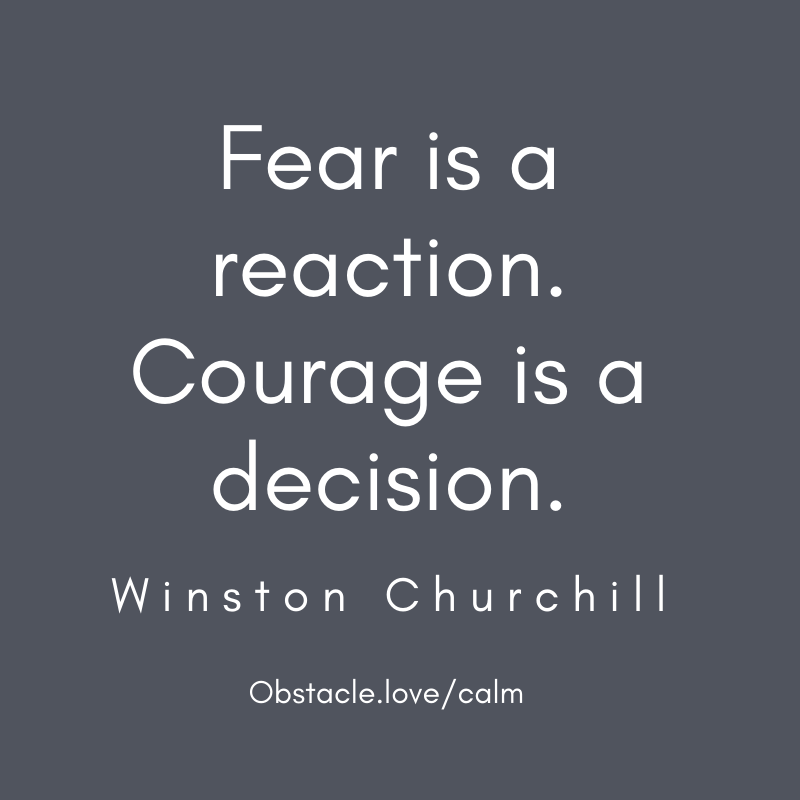
Moving
NASA doctors who were working with astronauts for years were wondering why the bodies of the latter would degenerate so much in space.
The obvious cause is that in space there is no gravity and thus the muscles we usually use remain passive so that atrophy sets in quickly.
We know that ever since the nineteen fifties. Astronauts who stay in space more than a few hours have a strict exercise regimen they have to follow each day.
Even though they exercise or even weight lift for two or more hours a day most of them are frail when they arrive back on Earth. Even their heart muscles struggle to pump blood again after weightlessness.
It turns out exercise, even for two hours a day, is not enough when you sit the rest of the day.
Why? It’s because every single move we make per day counts. We need at least 2000 of them daily to stay healthy but the typical person in the West manages to perform only around 1500 moves per day.
It’s not just the almost proverbial 10.000 steps. It’s everything you do with your hands as well – even shaking your head – just anything you do that requires any type of movement.
How did the NASA doctors find out about the average and perfect number of moves per day? They looked for healthy people first as a control group.
They found farmers from Madagascar for example who appeared to be among the fittest people on Earth, especially compared to us average sedentary Westerners.
Then they attached movement sensors to their bodies and counted the moves they performed. Guess what? The most healthy people on Earth were performing 5.000 or more moves per day.
That’s also the reason why standing desks do not really work. Just because you don’t sit does not mean that you move a lot more.
The body has a mechanism that works like an on/off switch. It’s triggered when you get up from sitting. Thus sitting down and getting up frequently is better than merely standing. Therefore
it’s imperative to spice up your daily routine with actual tasks that force you to move.
You can even combine them with household chores. I for one do not use my dishwasher because I wash everything by hand.
I also make an effort do wash dishes using my left hand which is weaker and requires more focus.
You can also walk the dog. I also regularly jump up and down, stretch and perform various types of exercises throughout the day. When you are
- running
- balancing
- jumping
or performing any type of tasks that force you to focus on it you can’t overthink.
Most types of fears simply stem from imagining a frightening future based on what you’ve heard, read or viewed so that occupying yourself will make them vanish.
Take note that that mindless repetitive movement like the one we perform when jogging won’t chase your fears away. Your mind will wander off and come up with negative thoughts.
Parkour is much better for the purpose of replacing fears because it requires your full attention (or you hurt yourself).
There is simply not enough room in your head for fear to appear.
There are many sports that require your attention completely and I’m sure you have your preferences.
Move in as many possible ways as possible. Challenge yourself.
Don’t just run the same old route or the daily sit ups. They don’t require any brain work anymore.
On the other hand sitting still for long periods of time not only harms our health directly it also leads to anxiety and stress thus causing even more psychosomatic issues. Unless of course you sit still and meditate.
Being Mindful
Remember? I have recommended meditation above already in the maintaining routines chapter.
Being mindful is also a type of meditation.
You don’t need to sit down though. You can meditate by doing whatever you do anyway. How is that even possible?
The term mindfulness is a bit of misnomer. Why? It’s the exact opposite of having the “mind full”. You rather empty your mind of thoughts by simply letting them go and instead focus on the task at hand.
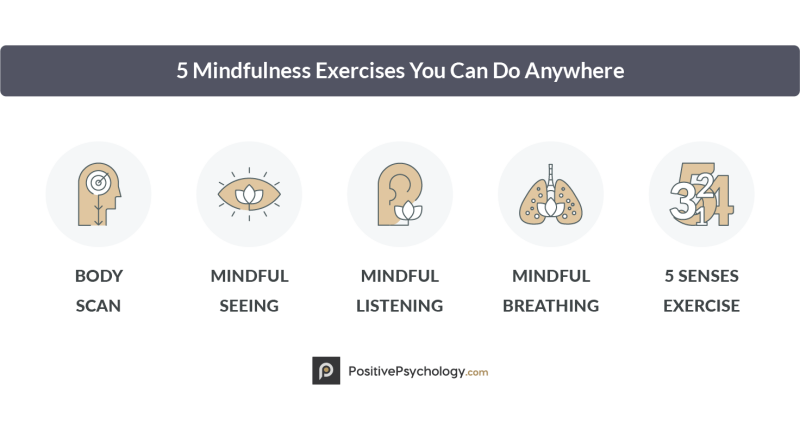
You can practice mindfulness anywhere and anytime. That way even something boring like household chores can become meditative.
That’s also one of the reasons why I wash my dishes manually.
When doing it with my weaker – the left – hand I have to focus even more on what I do and thus forget about all the imagined threats waiting in my mind. When you
- feel
- taste
- touch
- smell
- listen
- see
with all your attention then there is no room left for fear, anxiety and imagining scary future scenarios.
Sure, there is time for thinking about the future. It’s called planning.
When you do it focus on that 100% but when you’re done return to the present moment again and do everything else completely attentive as well.
Do not attempt to fool yourself by so called multitasking. All you do is interrupting tasks and being distracted. Perform one task at a time.
Singing
Did you know that the human brain can’t be afraid and sing at the same time? Now you know.
The brain region that develops fear is preoccupied with singing and thus can’t spend any effort on fear anymore.
That’s one of the reasons why through the ages soldiers were singing while on the way to battle or sometimes even when in it.
Whenever distracting or downright harmful thoughts appear on my mind and I don’t want them to divert my attention I simply start to sing a mantra.
My favorite mantra is “Lovely Day” – originally by Bill Withers – but I prefer the modern cover version by Jill Scott:
As you might have guessed I’m not a particularly good singer.
The only song I know by heart is “What shall we do with drunken sailor” I learned in school. Thus simply repeating the chorus of Lovely Day suffices for me.
Accomplishing Things While Calm is Easier
Now that you are calm you can actually solve any problems or face any difficulties with a clear and focused mind.
You don’t get distracted by irrelevant thoughts and you don’t have a tunnel vision because of fear!
Now you will be more likely to succeed at whatever you want to accomplish even without adversity. You can use these techniques at any time.
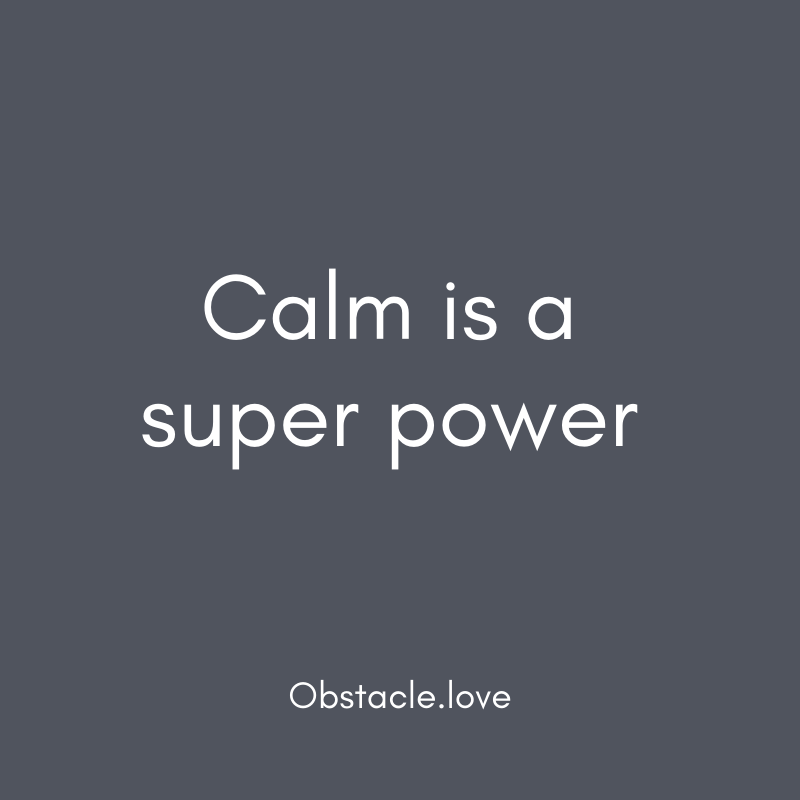
In fact once you start viewing obstacles as opportunities the constant up and down of your emotions will become less frequent.
Ideally one day an equilibrium will ensue. Life is much easier then. Calm is a super power.
Most of use aren’t superheroes yet. Even despite a decade of parkour and meditation practice I still get stressed, annoyed or otherwise disturbed sometimes.
Relax. You are just human. Don’t be that hard on yourself.
You don’t have to give up smartphones altogether like I did more than a decade ago.
There is even an app called Calm to help you finding balance in daily life.